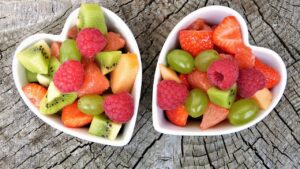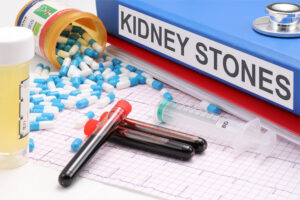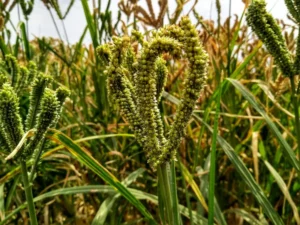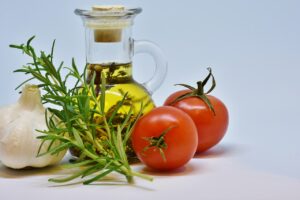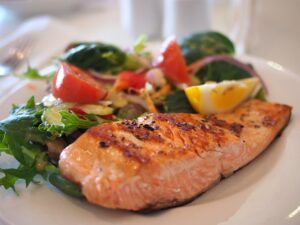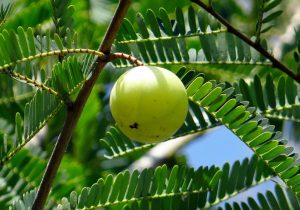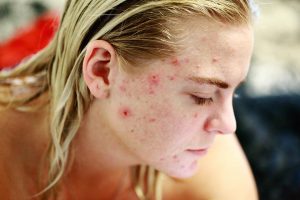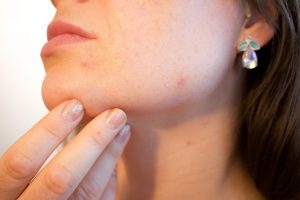Although salicylic acid, niacinamide, and benzoyl peroxide have been demonstrated to be the most effective acne treatments, their side effects, such as dryness, redness, and irritation, may make them prohibitively costly and difficult to use.
Research on the efficacy of many home treatments is essential since many lack a scientific basis. Here, we’ll look at some of the most popular at home remedies for acne.
Acne is caused by what?
Propionibacterium acnes, or P. acnes, is a bacterium that thrives in the presence of excess sebum. Acne causes skin irritation and acne due to your white blood cells attacking it. Acne may be treated most effectively by following the guidelines of a doctor’s office. You may also experiment with home remedies, but more study is required to determine their usefulness.
The following section will go over some of the most remarkable home cures for acne and some lifestyle adjustments you may make.
-
Tea Tree Oil
This is because tea tree oil is a naturally occurring antibacterial and anti-inflammatory, which means it may effectively kill the bacteria that cause breakouts. Pimples may be reduced in size and color because of tea tree oil’s anti-inflammatory qualities. Tea tree oil and acne were examined in a 2015 review research. According to the study, tea tree oil products may lower the number of acne sores in patients with mild to moderate acne. In this investigation, tea tree oil was shown to be equally effective as benzoyl peroxide, an OTC acne medicine that contains 5 percent benzoyl peroxide.
Acne sufferers may use lotions, gels, or essential oils containing tea tree extract. You may buy a variety of tea tree oil-related goods online.
-
Jojoba Oil
In addition to repairing damaged skin, the waxy components in jojoba oil may speed up wound healing, including the healing of acne lesions. To minimize redness and swell around pimples and other inflammatory skin lesions, jojoba oil may contain certain chemicals that reduce skin inflammation.
In a 2012 study, jojoba oil-infused clay face masks were administered to 133 participants. People who used the masks twice a week for six weeks had a 54% reduction in acne. Applying a face mask with jojoba essential oil mixed in is a great way to get rid of acne. If it doesn’t work, dab a cotton pad with a few drops of jojoba oil and gently apply it to acne lesions. Jojoba oil may be purchased at health food shops or on the internet.
-
The Aloe Vera
If you have acne, aloe vera may help lessen its look and prevent it from recurring. Because of its high water content and good moisturizing properties, aloe vera is ideal for those who have dry skin as a side effect of using other anti-acne medications.
Apply a thin coating of aloe vera lotion or gel to the acne scars after cleaning them. Aloe vera gels and creams may also be used to hydrate the skin. Health food shops and the internet both sell them.
-
Apple Cider Vinegar
Its antibacterial and antifungal properties have been studied together with other vinegar. Citric acid, one of many organic acids found in apple cider vinegar, is one such acid. Citric acid and zinc oxide have been shown to destroy P. acnes, according to a study published in 2016.
A study published in 2017 found that apple cider vinegar’s lactic acid may also help reduce the look of acne scars. The use of apple cider vinegar for acne is not supported by current research, despite the possibility that some of its components may be beneficial. According to some dermatologists, the skin may get irritated if you use apple cider vinegar.
Apply the mixture with a cotton ball after cleaning. Rinse with water and wipe dry after letting it rest for 5-20 seconds. Depending on your needs, repeat this procedure 1 or 2 times daily. You should be aware that putting apple cider vinegar directly on your skin may cause burns and irritation, and dermatologists generally advise against it. Consider using it sparingly and diluting it before using it.
-
Use Honey and Cinnamon to Create a Mask.
The combination of honey and cinnamon bark extract was discovered to have antibacterial properties against P. acnes in a research published in 2017.
According to a study published in 2020, Honey can inhibit the development of or kill P. acnes on its own. However, this does not necessarily imply that Honey is a good acne remedy. Using Honey after washing with antibacterial soap did not improve acne treatment results, according to a 2016 research including 136 acne sufferers.
However, more study is required to confirm that Honey and cinnamon may help treat and prevent acne. After removing the mask, massage your face dry with a towel.
-
Green Tea
Drinking green tea, which has a high concentration of antioxidants, may benefit your health. Acne may be reduced as well. Bacteria and inflammation cause acne, and polyphenols in green tea may help combat both of these issues, according to a study published in 2017.
Only a few studies have examined the potential anti-acne effects of green tea consumption, and further study is required to understand these claims fully. Green tea extract was given to 80 women for four weeks in short research in 2016. After taking the extract, ladies saw reduced acne on their noses, chins, and lips after the trial.
Skin benefits from green tea application are also possible. People with acne who apply green tea extract to their skin see a considerable reduction in sebum production and blemishes.
You may purchase green tea-based creams and lotions, but you can also manufacture your own at home. Rinse with water and gently dry your skin after letting it air-dry. You may also construct a mask out of the tea leaves by combining them with Honey.
-
Witch Hazel
There seems to be a little study on witch hazel’s effectiveness in curing acne, particularly at this time.
For six weeks, 30 people with mild or severe acne utilized a three-step facial treatment supported by a skincare firm in a small 2017 trial. Acne cleared up for the majority of individuals towards the research conclusion. According to new research published in 2019, Witch hazel may help battle acne-causing germs and soothe irritated skin.
Add 1 cup of water and one tablespoon of witch hazel bark to a small pot and bring to a boil. After 30 minutes of soaking, bring the witch hazel and water to a boil in a small saucepan. In a sealed container, pour the liquid through a fine-mesh strainer. Because of the distillation process, it’s vital to know that commercially produced versions may not include tannins.
Acne Treatment Involves A Change In Lifestyle
Acne flare-ups may be reduced by adopting simple lifestyle adjustments, such as reducing sugar and caffeine and exercising more. Acne may be improved by making a few lifestyle modifications, such as:
-
Avoiding Contact with Iimples
Acne sores might be attractive, but touching them can irritate the skin, worsen the pimple, and transfer the infection to other body parts. Doing any of these things increases your risk of spreading germs to your acne lesions and makes them more challenging to treat. Trying to get rid of a pimple by squeezing it might spread germs and other debris deeper into the skin, making the condition worse.
-
Finding the best cleanser for your skin
The acidity or pH of many conventional soaps is too high, which may irritate the skin and exacerbate acne. Reduce the likelihood of acne flare-ups by using cleansers, rinses, and washes with a pH that is near to your skin’s natural pH of approximately 5.5.
-
Stay Hydrated to Avoid Dehydration.
You should drink enough water to keep your skin hydrated, which will aid in the healing of acne scars and lower the likelihood of breakouts. Having dry skin increases the risk of developing pimples since it is more vulnerable to irritation and damage. As wounds heal, new skin cells must be formed appropriately if hydration is maintained.
Due to age, physical activity level, temperature, and medical problems, there is no one-size-fits-all recommended daily water consumption.
-
Reducing Anxiety
Androgen levels rise as a result of stress. Acne is more likely by androgen’s ability to activate hair follicles and oil glands in pores. To combat stress, consider the following suggestions:
- contacting loved ones, close friends, a physician, or other sources of assistance
- Make sure that you get enough shut-eye
- Eating nutritious, well-balanced meals, as well as not missing any of them
- frequently going for a jog
- restricting one’s intake of alcohol and caffeine
- meditating, doing yoga, or deep breathing
FAQs.
-
What’s the deal with toothpaste and acne?
Acne specialists advise against following this advice, which you may have heard. Toothpaste may exacerbate the affected area’s redness, irritation, and visibility.
-
Is Honey good for acne?
Raw Honey is an excellent acne treatment because it helps maintain a healthy balance of germs on the skin.
-
In the case of acne, may ice be used to treat it?
A pimple may not be cured by ice alone, but it may be reduced in size and red, making it less noticeable. When used on very inflamed pimples, ice might provide brief pain relief.
To Sum It Up
Acne sufferers have a wide variety of home cures to select from. There are no guarantees that any given remedy will be effective for everyone or every circumstance. The effectiveness of most home cures for acne has not been scientifically verified, although they may be helpful to specific individuals.
Before adopting any natural remedy for severe or persistent acne, a dermatologist should be consulted. Do not ignore tiny acne sores that don’t get better or worsen after using over-the-counter acne treatments.
Also Read: Effective Natural Remedies For Anxiety And Stress



